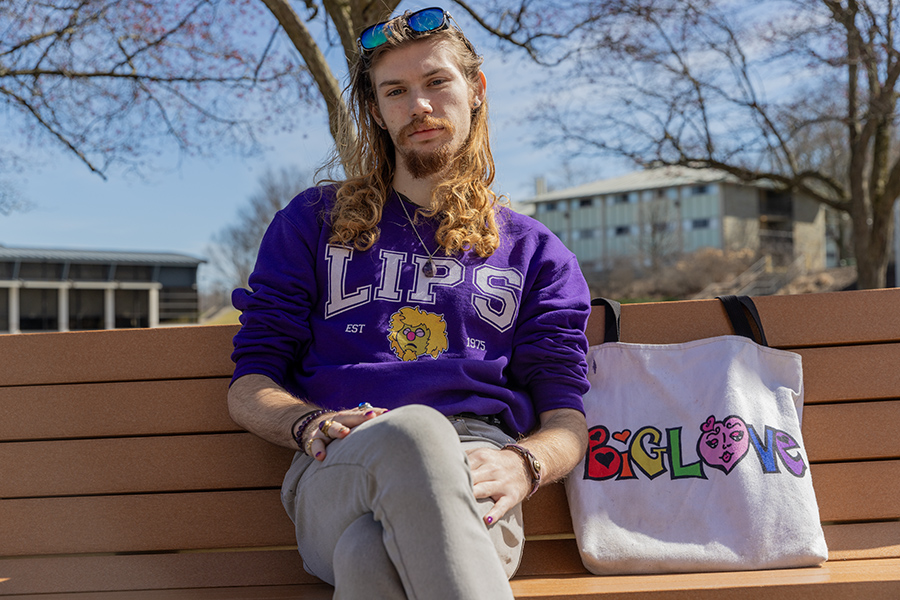Editor’s Note: This is a guest commentary. The opinions do not necessarily reflect the views of the editorial board.
Time and time again, it’s been shown that despite being one of the Campus Pride’s “Best for Best” schools for LGBTQ+ students, Ithaca College has an issue with “queer Hierarchy.” For context, “queer Hierarchy” is a theory that addresses an unspoken caste system within the LGBTQ+ community that centers specific identities (white, gay, cis men) at the top and pushes others (BIPOC, trans, etc.) even further down the social ladder. Many of the college’s organizations and clubs make great efforts to make our queer students feel welcomed in their dedicated spaces.
However, despite these efforts, it is clear that some students feel barred from engaging with their community or exploring their own expression further. According to Luca Maurer, executive director of Student Equity, Inclusion, and Belonging, roughly 30% of our student population (1,380 students) self-identify as LGBTQ+.
However, only a small number of these students will utilize resources like the LGBTQ Center and campus clubs like Prism or Spectrum. There are many potential causes for this, including students’ busy schedules, but there is a deeper cultural concern afoot. You see, when I asked my queer friends why they don’t attend events, the resounding answer was that they felt they “weren’t gay enough” to attend.
This notion of not feeling “gay enough” or “queer enough” is so deeply disheartening because it’s not only a form of personal oppression: it also forces the narrative that there is a “right way” to be queer. Speaking personally, I (February) have been told over and over again that I am one of the “gayer” people in my friend group, largely because I wear bright colors, use the word “slay” and enjoy nerdy media. … But how does any of that make me more queer than someone else? What do these pieces of criteria have to do with my gender identity or sexuality? For some, they may be intrinsic aspects of their identity, but speaking for myself, they aren’t, which makes me that much more curious as to why these attributes are looked at as a blueprint for queerness.
The reasons why students may have difficulty engaging with queer community at Ithaca College are incredibly varied and personal. Some may feel that they aren’t “queer enough” because of being in a straight-appearing relationship, no matter how all involved parties identify. Others may not feel welcomed because of uncertainty about their identification, either while they are questioning their identities, or considering how public they are willing to make their identities, because of concerns about rejection based on intersectional identities. However, these are all experiences that are valid and accepted; life is complex, and that complexity can be celebrated.
The time I’ve spent on this campus has allowed me to discover more about how I personally understand my gender and sexuality, and how I choose to express it to the world. Going to events at the LGBTQ Center, meeting other queer folks and learning about their identities and experiences have all served me greatly in my journey. They’ve taught me about different identities that I otherwise may not have encountered and provided affirmation and emotional support as I’ve developed my identity. This obviously won’t be everyone’s journey, but it is incredibly important to explore the resources that are available, especially if it feels like engaging with these resources would require branching out. If one remains closed off, they may never know how access to these resources could have helped them!“As a multiracial, non-binary person whose gender and sexuality have shifted over time, I’ve often encountered feelings of not being ‘enough’ for certain spaces or categories. However, queer spaces have been essential to me for navigating those feelings in community and to feeling a sense of belonging in the messy gray zones. I see the LGBTQ Center as a place to explore and embrace any difference from gender or sexual norms, and to actively resist perpetuating or creating new hierarchies that harm our work toward collective liberation.” – Lee Tyson, Ithaca Pride Fellow.
The world has no problem telling us that we aren’t good enough and that we don’t belong, so why not be brave and embrace your queerness, just the way you are? You can present as you like or as you are comfortable; you can be as bright and rainbow, as alternative, or as anything-else as you want to be, and whatever categories you find fitting can change over time! All it takes is stepping in the room and embracing your unique self, just as you are.
February Schneck (they/them) is as junior theatre studies major. Contact them at [email protected].
Cecil Decker (he/they) is as senior women’s, gender, and sexuality studies major. Contact them at [email protected].














